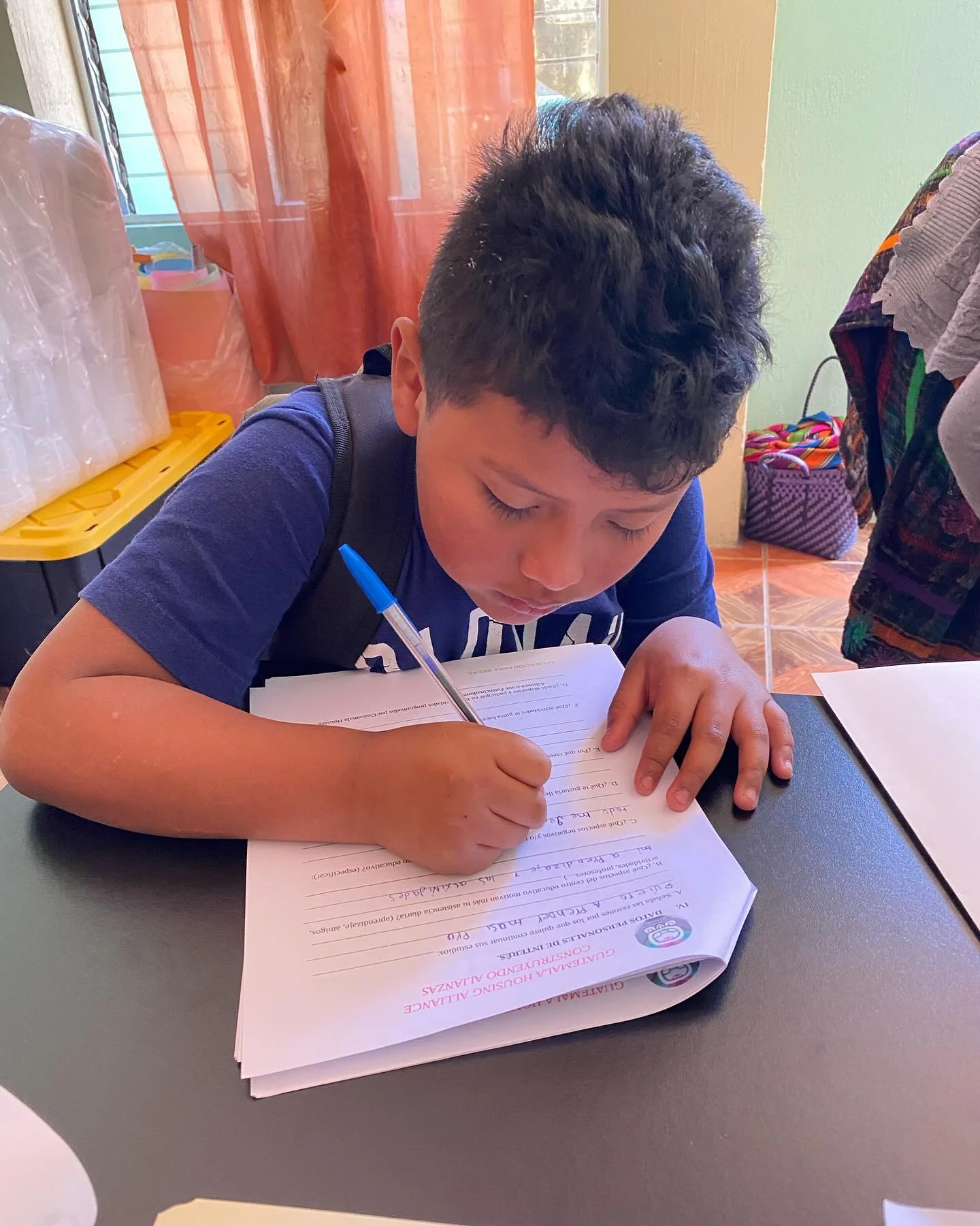SCHOLARSHIPS
For this school year that began in January 2025, MESA proudly provided scholarships for 59 students from the Lago de Atitlan communities of San Juan, San Pablo, San Pedro, and Pasajquim. Though public education is nominally free, students must still pay registration and monthly maintenance fees, and buy uniforms, books, and supplies. Children from the most disadvantaged families are compelled then to join their parents working in agriculture. This systematically relegates children to a future in the working underclass. All those students receiving scholarships are living in extreme poverty, often in households headed by single moms.
Costs for primary, middle and high school scholarships average $300 annually. Having supported our students through high school, we assure them of our support if they want to attend the nearby university. For those students MESA contributes $1000 annually to help with their expenses including transportation from the villages.
All scholarship recipients are required to maintain passing grades or to attend tutoring classes until they are able to meet the demands of their studies. Additionally, all are asked to do some form of community service tailored to their village’s needs—from mentoring to picking up litter.
We are proud to have 10 students at university level this year. For these indigenous youths who grew up in extreme poverty, raised in homes where often no Spanish is spoken and parents are illiterate, this is a truly awesome accomplishment. It has taken sacrifice from the entire family, and immense commitment from the students to get to this level. All work weekdays and study on weekends. Among subjects being studied at university level are nursing, engineering, social work, education, and biology.
An important component of our education program is enrichment studies. We provide classes in Spanish for those students beginning school who hear only T’zutujil in their homes. We provide reinforcement mentoring for students struggling with academics. We require students to attend workshops we organize around topics such as responsibility for the natural environment and diversity. In 2019 we began optional workshops for the mothers of our scholarship students centering on subjects they themselves requested, including nutrition, legal rights, and entrepreneurship.















